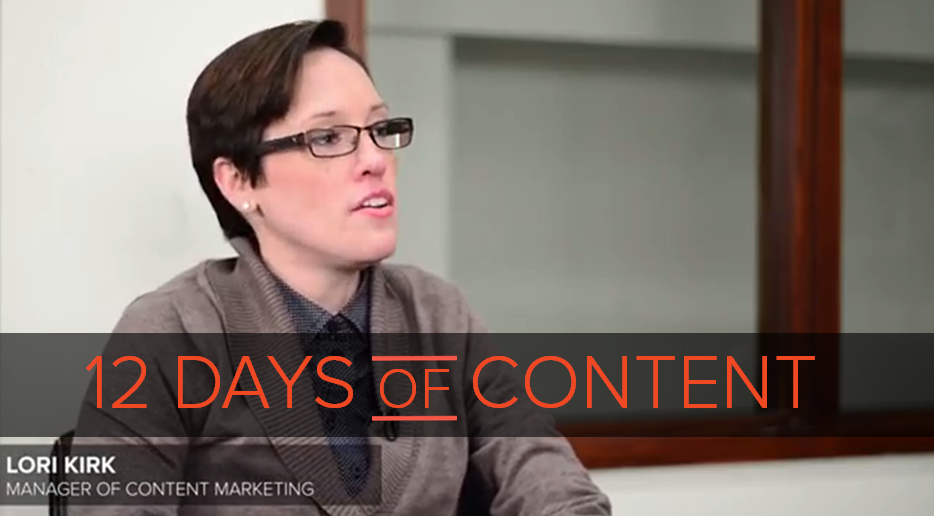Want tangible return on your content investment? You need to know how much a web conversion is worth, and how to measure it, BEFORE you set strategy goals. In Brafton’s 12th day of the 12 days of Content, we’re going to show you the content marketing money. Manager of Content Marketing Lori Kirk explains how to show the cold, hard cash from content. Play the interview to hear her answers, and read the blog post for additional insights:
Know what conversions are worth to your business
If you’re an ecommerce company, it’s pretty easy to tell how much money you’re making from your website. You can track web visits and see which pages they view before they buy from you. If they read your blog, looked at your graphics or watched a product demo at any point in the online purchase journey, you can attribute a partial win to your content marketing.
“For a client whose sales process takes six months to a year, we break it down into touch points and the likelihood of that prospect making it to the next step,” said Lori.
It’s not as simple for a company that operates on a longer sales cycle or counts form fills, demo requests or newsletter signups as online conversions.
However, it’s still very feasible to calculate your return. You just have to know what conversions are worth to your bottom line. How much more revenue will you get if your strategy gets web traffic increased by 30 percent? Well, start with, what percentage of web visitors converts? How many web conversions yield actual sales? If one in every 200 web visitors converts, then use that to gauge how much a traffic uptick could be worth — but you need to also know the sales “closed-won” rate of web conversions. How do you arrive at that? Read on!
If you don’t know, ask your sales team
You can get much more nuanced in the dollar value of conversions or micro conversions by connecting with sales and tracking web interaction against sales activity and deal sizes. What’s the value if someone downloads a white paper, versus only reads blog posts before converting online? How much more revenue will you get if your strategy increases web traffic by 50 percent?
“When it comes to things like leads, I ask my clients what a lead is worth to them. To be honest its a bit of a red flag if they don’t know what a lead is worth. If you don’t know what a lead is worth, how are you going to determine value of our success?” Lori added. But then she gets connected to a sales manager.
If you don’t know answers about lead value, you, too, should connect with your teammates on sales. Don’t let them off the hook until they tell you what the rate of conversion is or the average value of a web lead. Once you have this information, you can start to reverse engineer your metrics to determine the value of certain goal completions.
For example: If you know a web lead spends $1,000 dollars on average, and web leads convert at a rate of 1 and 10, you can figure that for every 10 leads you get, you’ll make $1,000. And for every 20 web visitors you get, you get at least one lead on average. From there, you could figure that every visit is worth about $.20.
You can similarly track for downloads. If each download is a lead and you know that people who download an eBook convert at a higher rate than prospects fill out a form after reading NON-GATED content, and typically spend a given amount, you can calculate how much each download provides.
Determine your desired return before you invest
A survey covered by eMarketer asked B2B marketers what metrics they wish they could measure but don’t know how to. Nearly 55 percent said they’d like to be able to measure how many conversions and sales they were getting from people who had read their content.
“Good investments are usually well thought out far in advance. If you treat is as an afterthought and think throwing up a few blogs is going to dramatically change your business, you’re going to be disappointed,” Lori added.
But it’s hard to measure how many conversions you’re getting when you don’t know what you’re trying to achieve. That’s why we recommend that companies determine their goals before they start a strategy – and not just broad goals, but specific, realistic goals. How much traffic do you want to drive? How many conversions do you want to generate from your content? How many do you need to get to make the investment pay off?
When you start with your goals, you bake success into the process. Remember to visit our 11 other days of content for more tips to build YOUR winning marketing strategy!



